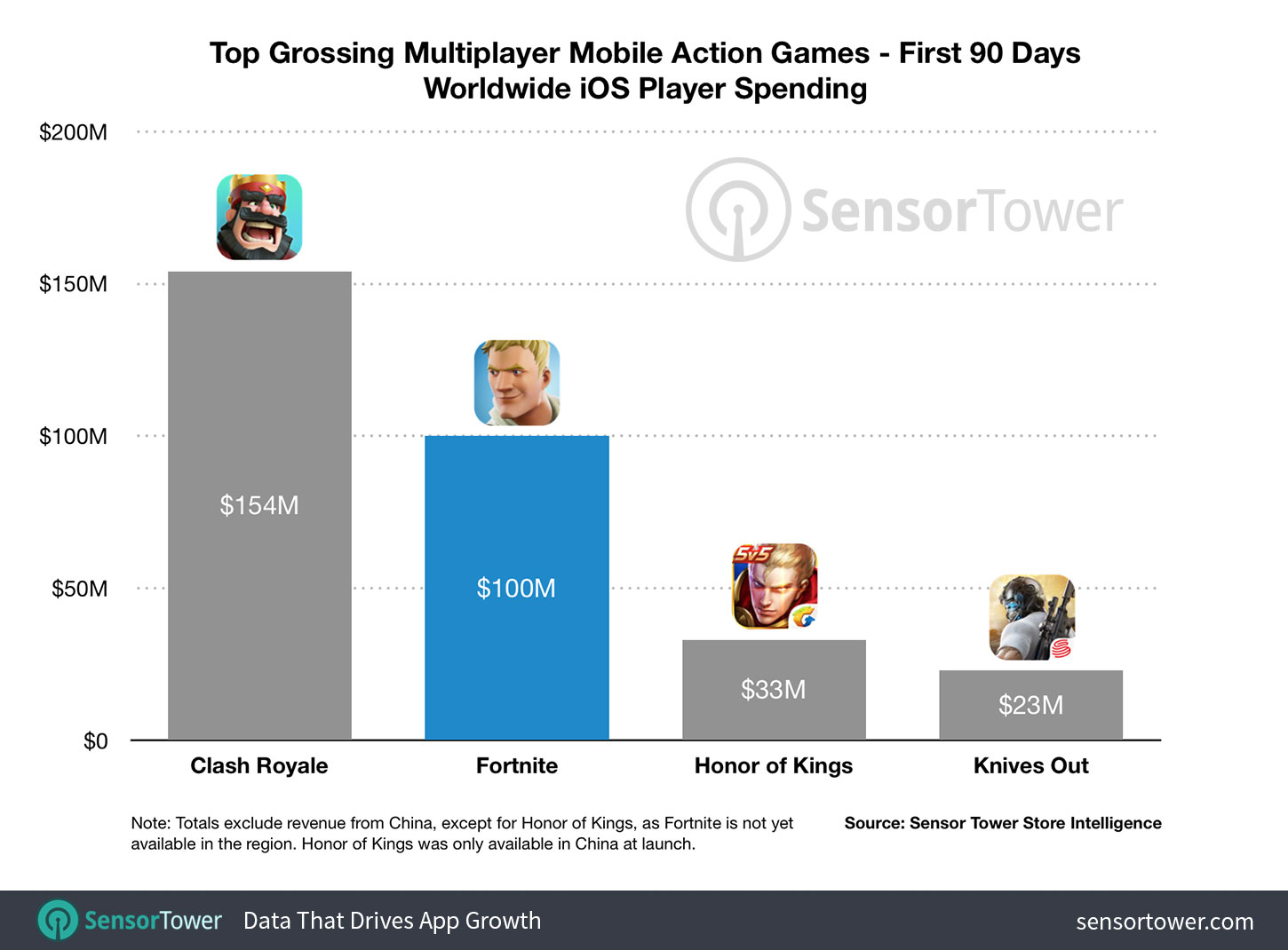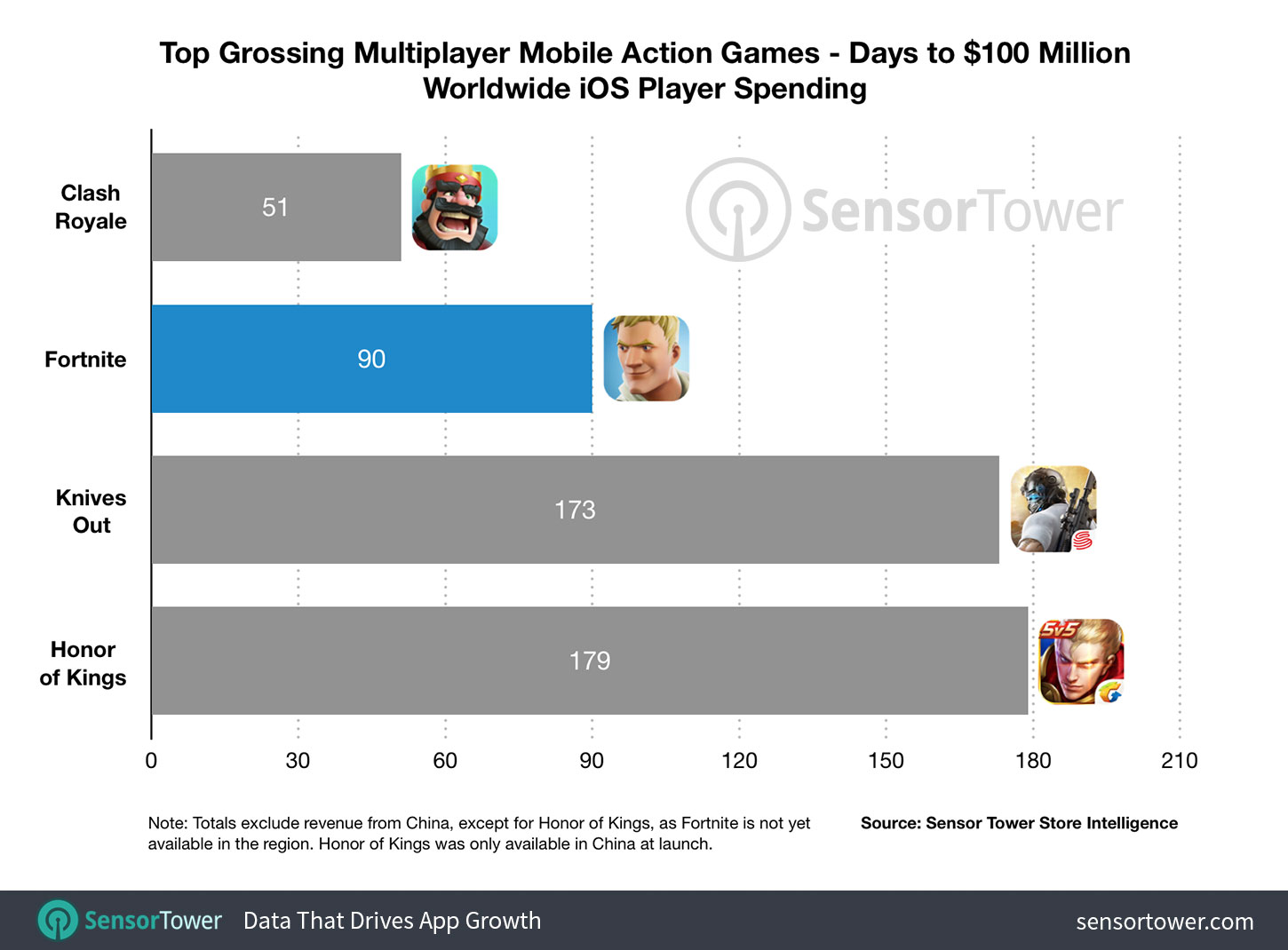2026 State of Mobile is Live!
Mobile App Insights · Randy Nelson · June 2018
Fortnite Earns $100 Million in Its First 90 Days on Mobile
Estimates from Sensor Tower Store Intelligence show Fortnite reaching another major revenue milestone on mobile.

Having brought in more than $25 million during its first month on mobile, Fortnite increased its revenue generating momentum to surpass $50 million by its 45 day mark. Now, three months since its March 15 launch, Sensor Tower Store Intelligence data reveals that the game—which debuted on Nintendo's Switch console last week—has reached $100 million in worldwide player spending on Apple's mobile platform.
Already Among the Mobile Gaming Greats
In reaching this milestone, Epic Games has managed to surpass some of most successful multiplayer mobile titles of the past two years, despite the fact that Fortnite initially launched in invite-only form for two of the 12 weeks it has been available. As the chart below shows, it earned more than 3x as much as Tencent's massively successful Honor of Kings—known as Arena of Valor in Western markets—did in China during its first 90 days on iOS, despite not being available there itself. (It will be launching in China at an undetermined future date courtesy of none other than Tencent.)

The mobile version of Fortnite has also earned 335 percent, or about 4.3x more than its closest revenue rival among the new breed of battle royale titles on mobile, Knives Out from NetEase. What's more, it managed to earn approximately 65 percent as much as Supercell's Clash Royale did in its first 90 days, a title that had the most successful launch in mobile gaming history next to Niantic's Pokémon GO in terms of revenue.
The Race to $100 Million
It took Fortnite's mobile players 90 days to spend $100 million in the game. We looked at how this compared to its rivals above. Among them, Clash Royale managed the fastest time from launch to the $100 million milestone on iOS, accomplishing the feat in just 51 days. Fortnite, however, reached this point nearly three months faster than Knives Out and Honor of Kings, at 173 and 179 days, respectively.

Fortnite's most noteworthy rival, Tencent's mobile version of PlayerUnknown's Battlegrounds, is absent from both of the above analyses for two reasons: It has only been monetizing for 60 days and it hasn't reached $100 million in player spending. According to our latest estimates, it has considerable ground to cover, having only grossed about $5.2 million to date on iOS as its publisher works out the best way to monetize its mobile player base. Tencent appears to feel that adopting an objective-based approach similar to Fortnite's Battle Pass, calling it a Royale Pass, is one way to close that gap. It just launched today, so we'll be keeping an eye on how it affects PUBG Mobile's revenue generation.
An Epic Earning Outlook
So far, Epic Games seems to have found its winning revenue formula across console, PC, and mobile, and that's selling limited-time (but non-random) cosmetic items in-game along with the aforementioned Battle Pass, which is good for one of the game's "seasons" that grants holders free items and other bonuses. We recorded a quadrupling of revenue when the game's fourth season debuted at the beginning of May, and we'll be keeping a close eye on what happens when season five hits.
Even apart from Battle Pass sales, we see Fortnite growing its momentum on mobile, and there are no indications of it slowing there—or anywhere else—as it continues its reign as the world's most popular game.
